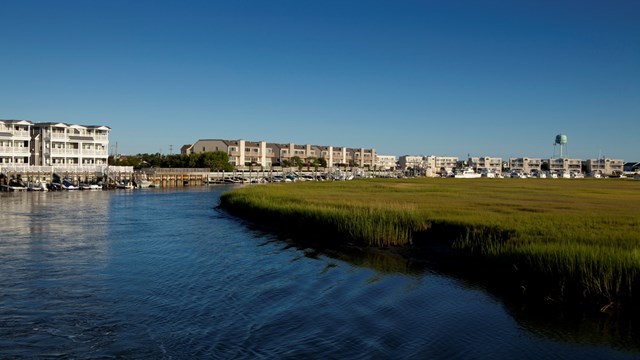Serving on a condo board has its challenges—not least of which is dealing with potentially volatile legal or security situations. Such scenarios might involve anything from residents with orders of protection or criminal histories to buyers or residents who are listed on sex offender registries. How board members and managers handle these types of issues impacts the entire building or community—so it's vital to know what to say, what not to say, and how best to act when faced with a touchy situation.
Restraining Orders & Security
If a board member or manager is advised by a resident that a crime is going to be or has been committed, he or she should advise the resident to call the police and take direction from law enforcement authorities.
Generally speaking, there is legal principle that one party is not liable for the criminal actions of another (absent collusion, agency or the like). However, the condominium documents, to a certain extent, may also define the obligations of the board.
“I have a homeowner in one of my associations who claims she was being stalked,” says Joseph Balzamo, president of Alliance Property Management in Morristown. “She wanted the HOA to protect her [by hiring additional security staff], but the association didn’t have the money. It was decided that if the homeowner wanted extra security she’d have to arrange for it herself or if she felt she was in danger, to call the police, because that is their job. The association is under no obligation to provide a homeowner extra security unless it’s in the home owner association’s governing documents, which I have never seen.”
“Building administrators are usually not aware of restraining orders or felony convictions within their building,” says Stephen B. Kotzas, a managing partner with the law firm of Berry, Sahradnik, Kotzas & Benson in Toms River. “It’s not readily available information, because a lot of those issues aren’t even public. Restraining orders are obtained in family court and usually are not accessible to the general public. The way [building administrators] may find out is usually via complaints from adjacent owners—usually noise complaints or other nuisances.”
Homeowner associations typically screen all potential applicants and perform background checks on all perspective residents, so it is possible that building administrators could become aware of issues like restraining orders, orders of protection and felony convictions within their building during this time. How much they can do in relation to such information is another matter.
“We have a statute in New Jersey that is required for housing-related disputes called alternate dispute resolution, or ADR,” says Kotzas. “It’s a generic umbrella term that could apply to mediation, conciliation or arbitration. It’s a way of resolving disputes, and it can be done in-house, either by a committee appointed by the board of directors or appointed by an outside mediator or arbitrator. It often resolves disputes, but if you’re getting into something where there may be criminal activity, it’s not going to resolve something that serious and it certainly won’t resolve something like domestic abuse.”
“If there is a restraining order that is something that the police would enforce, certainly not the association,” says Manalapan-based attorney Hubert C. Cutolo, a partner with the law firm of Cutolo Mandel, LLC. “If there was a violation of that restraining order, you’d contact the court and the police would take requisite action. That would be something the association would not want to get involved with. Typically that is something building administrators wouldn’t be aware of unless people gossip and bring it to their attention.”
“Saying Too Much”
The first inclination of many board members is to share what they view as important information with the residents of the building or association, but when it comes to sensitive legal issues, transparency is often not the way to go. The fiduciary responsibility of board members must be taken seriously; what they say can make an association liable in the event of court action.
Experts agree that when sensitive topics arise, the board should proceed with caution.
“Boards have to be especially careful when things of a personal nature to unit owners come up,” says Cutolo. “Because it can potentially open you up to slander and libel claims as well as invasion of privacy issues. But then again as a board member you do have a fiduciary obligation to take steps for the health and well-being of the community. If it’s a true statement that’s always an ultimate defense but when you have two people that are in a conflict situation, you never want to repeat what one is saying about the other if one story is completely different from the other story.”
“We have strict privacy laws here in New Jersey,” adds Kotzas. “I always advise my directors not to discuss who might owe money to the association, who may have domestic problems or may have other issues with their conduct. We try not to identify specific names if it comes up at an association meeting. You can’t invade their privacy— that could lead to a legal dispute.”
Experts generally agree that board members shouldn’t get involved in personal arguments between residents—if in doubt, they should call their attorney to get professional advice on what to do.
“Anything that would involve threatened or pending litigation, personnel matters would be utterly private,” says Kotzas. “Any matter where you might have an issue between an individual where somebody’s health and emotional state is concerned I would advise the board against talking about that because they could be sued for invasion of privacy. I recently had a matter where a board member made a comment about a contractor. It was a disparaging term about the contractors’ business practices in the association newsletter and we had to print a retraction. The board member did not make a reasonable inquiry into whether or not it was the truth.”
A board also needs to distinguish between the normal human desire to be protective of one’s friends and neighbors, and the limited obligations, powers and duties of a condominium board.
“Say you were in marketing or sales and someone says you’re a crook, it’s kind of difficult to show damages of those types of things,” says Kotzas. “If the person is in a position of trust, an accountant, an attorney and can show a downturn in their business. There could be damage depending on what was said. In other words, board members have to be careful what they say.”
A board also needs to distinguish between the normal human desire to be protective of one’s friends and neighbors, and the limited obligations, powers and duties of a condominium board.
Registered Offenders
There is no law against registered sex offenders living in a condominium or homeowners association in New Jersey, but nevertheless, boards have tried to implement restrictions against sexual predators.
In 2001, a New Jersey Appellate Court considered and rejected a challenge to a bylaw amendment barring sex offenders in Mulligan v. Panther Valley Property Owners Association. The plaintiff in the case challenged several bylaw amendments barring Tier-3 (Tier-3 offenders are deemed to pose the greatest risk of committing new offenses) sex offenders from residing in the community.
“There’s been a huge amount of controversy around convicted offenders and what you can and can’t do to them in terms of legal protection,” says Kotzas. “They cannot be harassed or they can sue.”
For a list of registered sex offenders in the state of New Jersey go to www.njsp.org/info/reg_sexoffend.html.
“I have a property where a registered offender was moving in a couple of blocks from where my building was,” says Balzamo. “So the local municipality posted a notice on all the doors in our building and surrounding buildings that a sex offender was moving into the neighborhood. Some of the homeowners were upset about it, but there was nothing they could do.”
A Madoff Situation
Let’s say a condo or association has a media situation like the one involving Bernie Madoff, where TV crews are running rampant on the property and residents feel they need extra security to be safe. Surprisingly, in most cases, it’s not the building’s responsibility to make that happen.
“If a high profile criminal moves in and there’s extra camera crews and reporters around the property non-stop, it’s not the association’s obligation to provide extra security, unless it’s in the homeowners associations governing documents,” says Balzamo. “And I’ve never seen anything like that in governing documents.”
Experts agree that in a heightened risk situation, the board may want to consider heightened security if it’s feasible. The common areas of a condominium complex are private property, which are generally administered by the organization of unit owners. If TV crews are on the property without permission, the police should be called to remove them.
Of course, no matter what the situation, if residents think there is a problem with an offender or some other type of criminal behavior in their building, they should bypass the board and contact the local authorities immediately. It’s fine to let the board know, but there is no substitute for notifying the police if you think there is a chance of a violent or criminal occurrence.
Keith Loria is a freelance writer and a frequent contributor to the New Jersey Cooperator. Staff writer Christy Smith-Sloman contributed to this article.







Leave a Comment